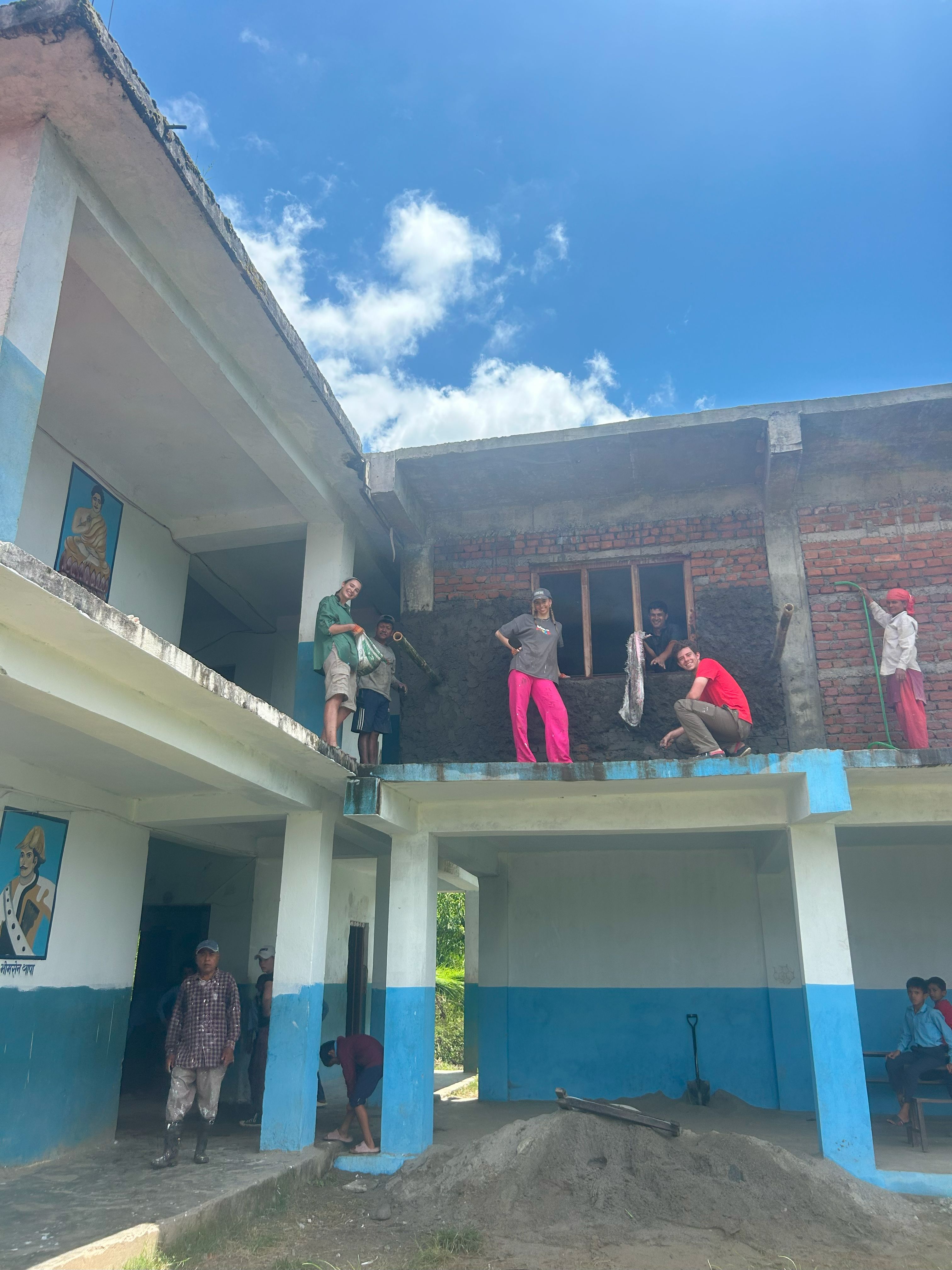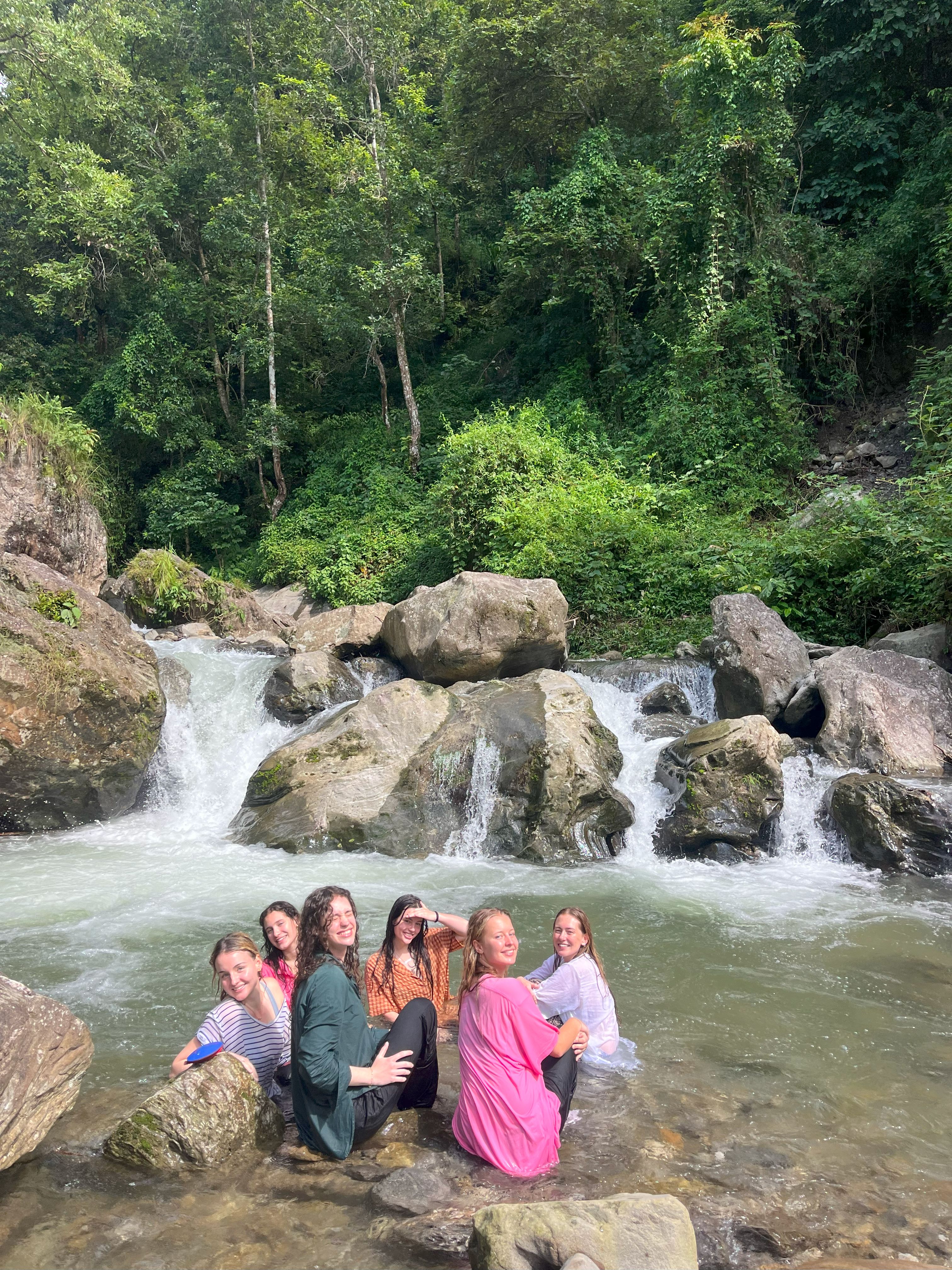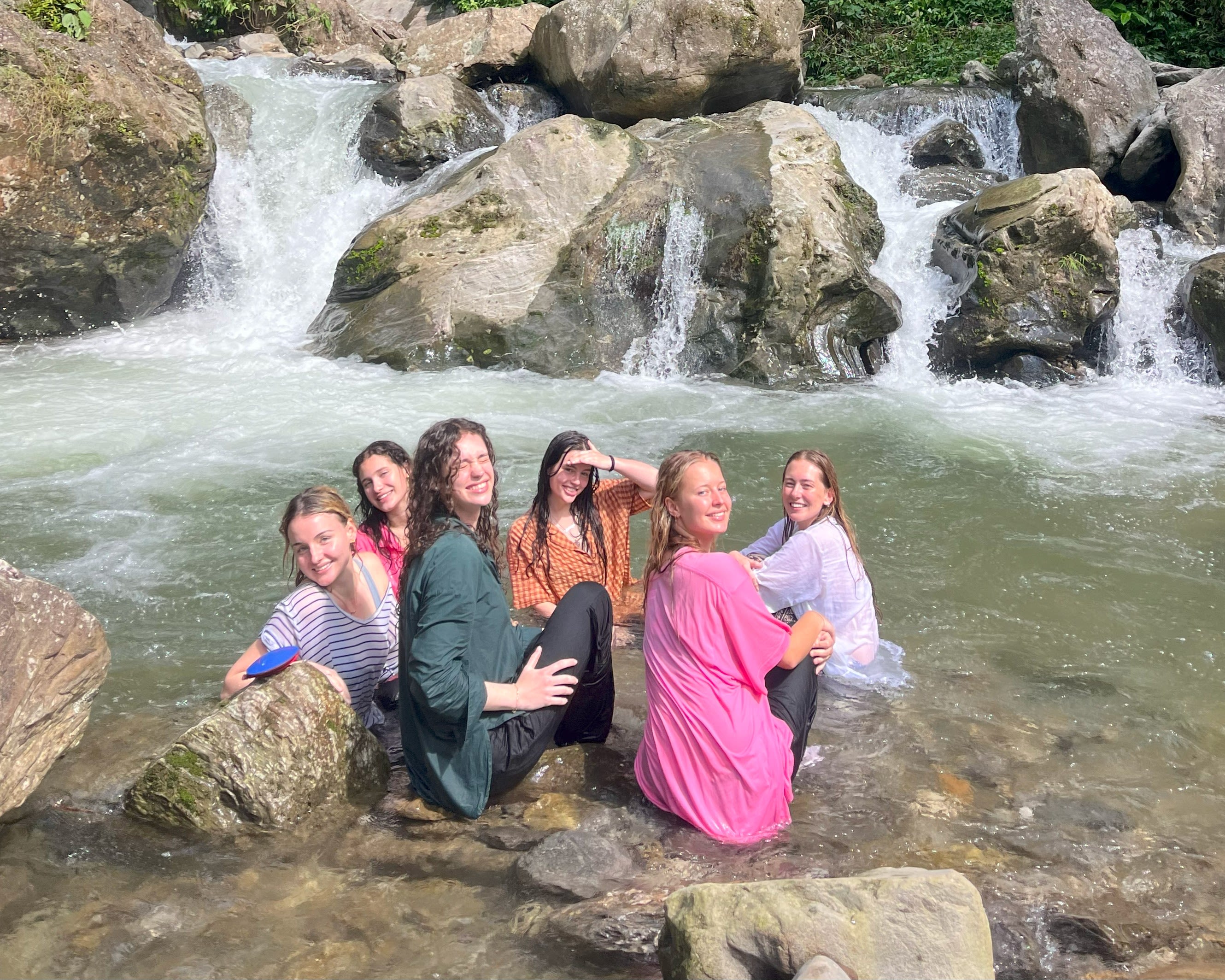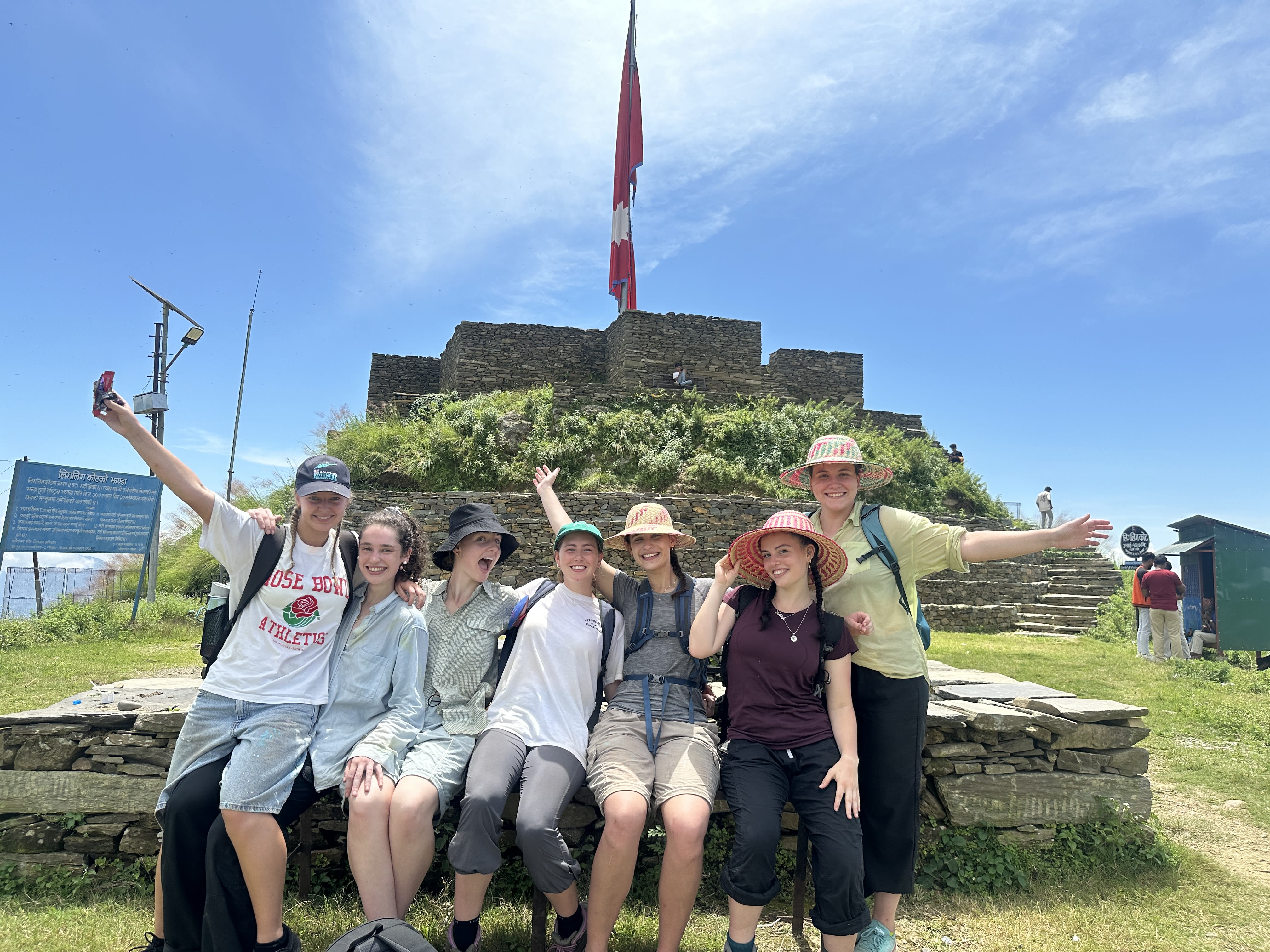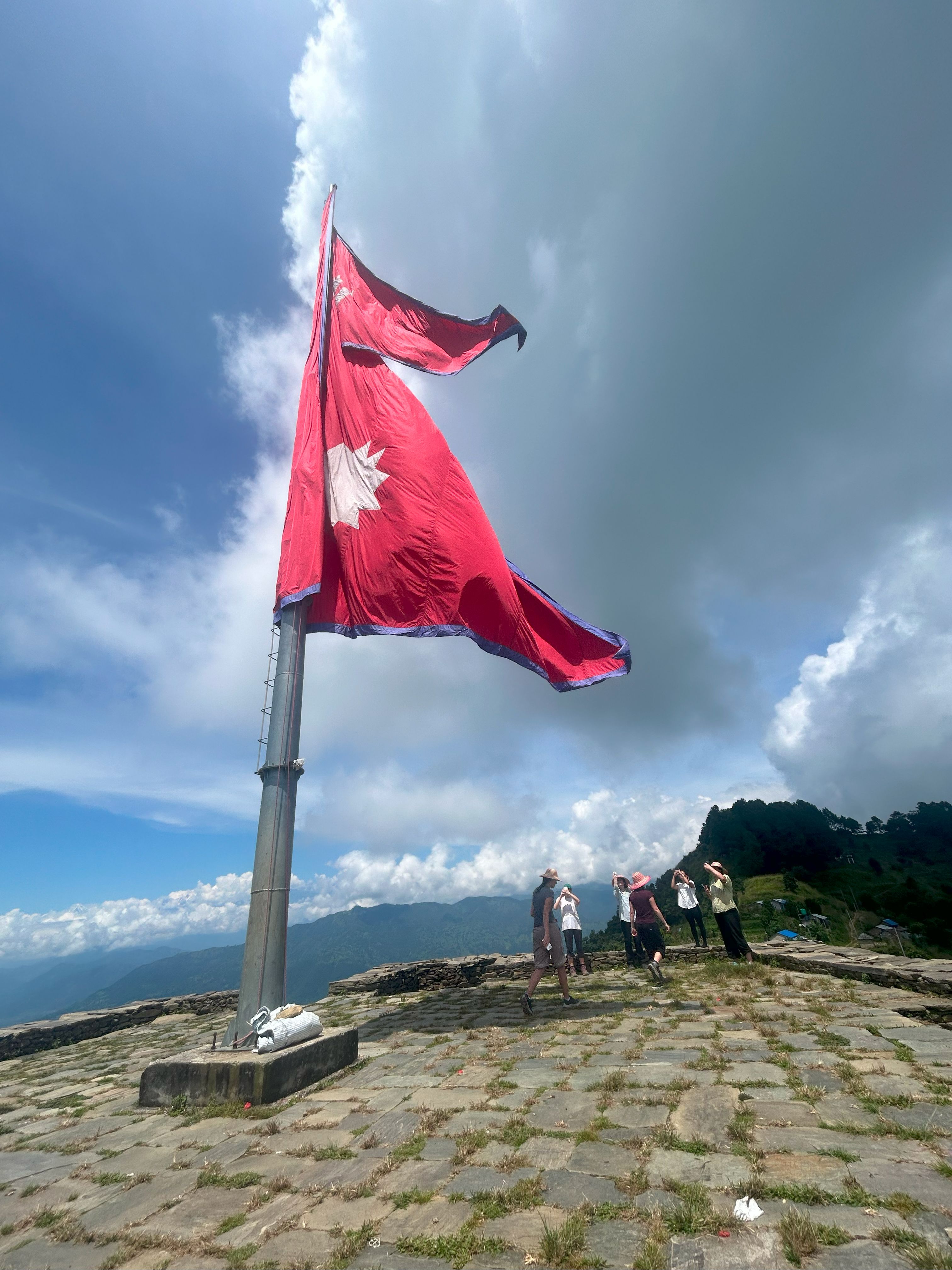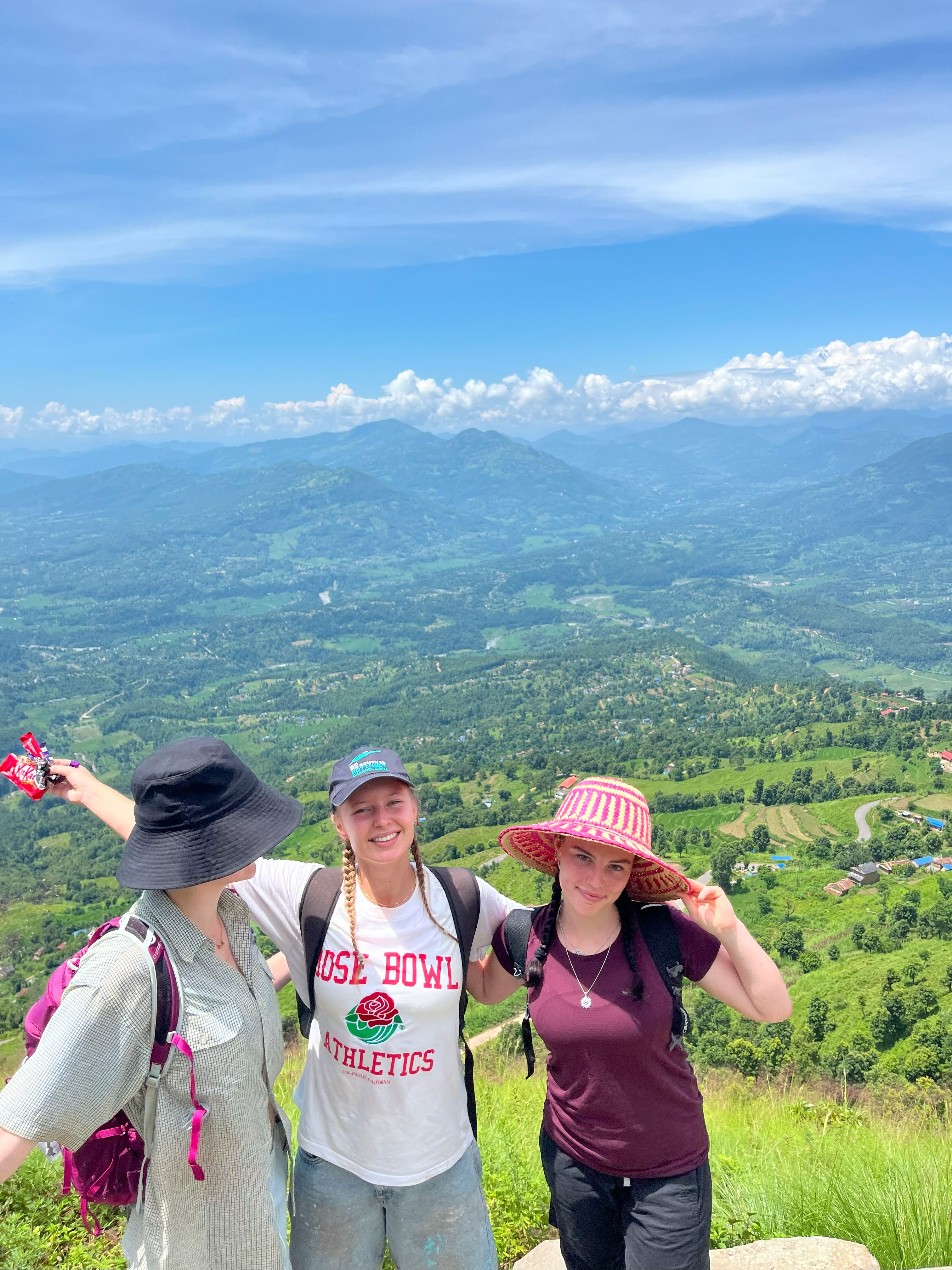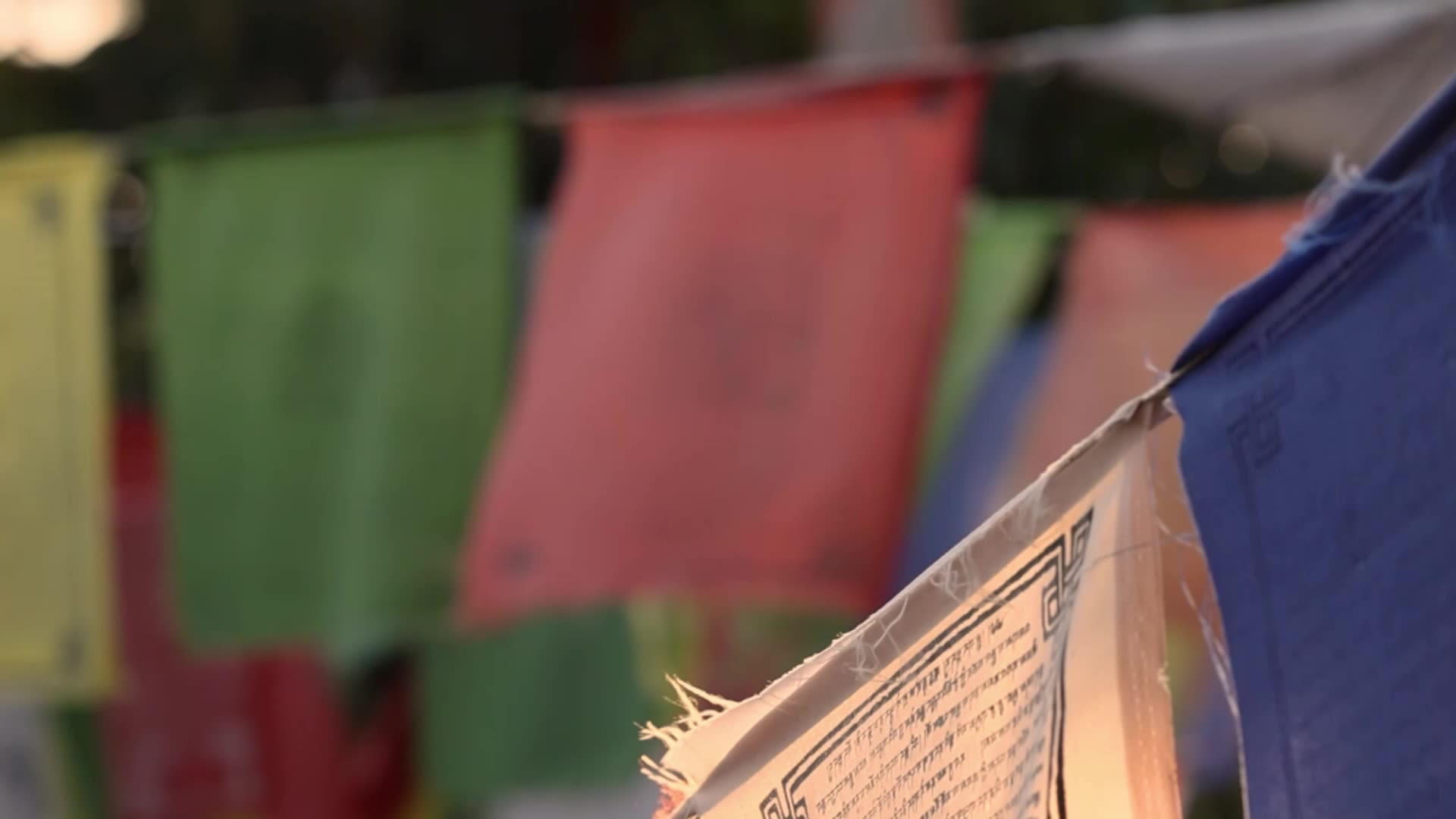
Bond Aid is a student-run initiative that enables volunteering experiences for Bond University students. Over the years, Bondies have travelled to Malawi and Nepal to support rural and remote communities.
In August 2024, 16 Bondies dedicated their holidays, resources and compassion to a rural village in Nepal, embarking on a transformational journey of their own.
Students from various faculties and study areas spent three weeks in a small village in Gorkha, Nepal. They volunteered at two local schools, assisting with paving, rendering and painting classrooms, and teaching. The experience was partially funded by Bond’s Student Opportunity Fund, with participants covering the remaining costs themselves.
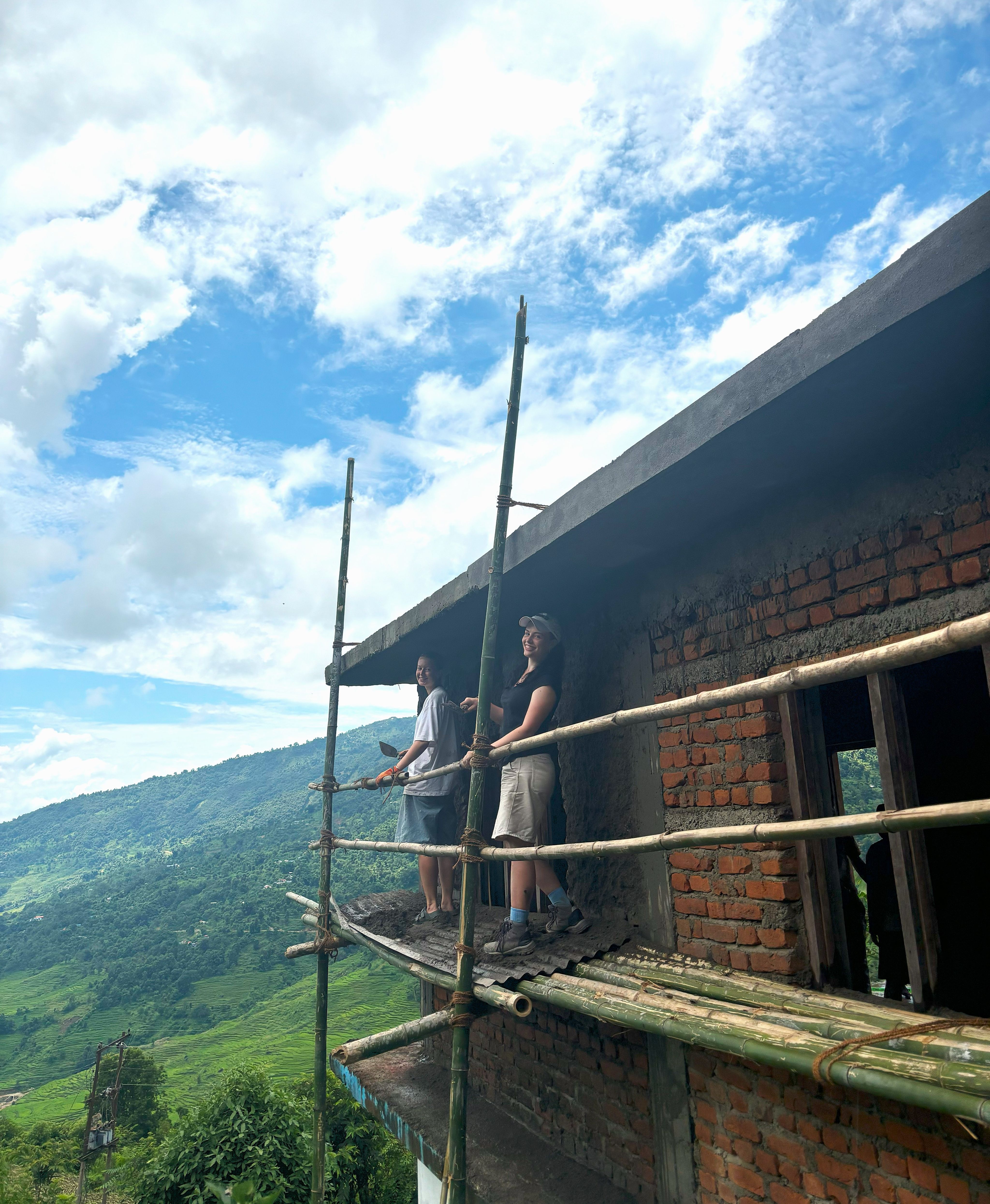
Connor Grigg, a Bachelor of Laws/Bachelor of Actuarial Science student, served as treasurer of the Bond Aid Committee. “It enabled us to grow so much, getting to know a culture that’s so socio-economically, culturally and religiously different,” Connor says. In collaboration with Partnership for Sustainable Development Nepal (PSDNepal) — a not-for-profit organization based in Kathmandu — the Bond Aid committee spent 10 months readying for the mission. Preparation included logistics and risk management sessions, as well as cultural immersion and language training.
Bond Aid participant Sienna Grubb studies international relations and law and says she has an interest in social issues. “I hope to pursue a career in humanitarian aid and being able to play a small part in that while I’m at university is really important to me,” Sienna says.
A day in Nepal
The days started around 6.30am with a short walk, returning to their host family’s home by 7.30am for a breakfast of dal bhat (a Nepalese lentil curry).
The Bondies then split into high school and junior school groups and began their eight hours of volunteering.
“We were working with the teachers at the school and about 20 students at one time, helping the students to have the best opportunities possible,” Connor says.
The groups joined back together at 5pm, in time for dinner with each host family (more dal), debriefing over a game of cards, and an early 8pm bedtime — well-earned after a long day’s work.
Weekends were for exploration and cultural immersion. The Bondies spent them hiking Nepal’s mountains, swimming in idyllic waterfalls and learning the cultural stories and significance of the sights.
Sienna describes a hike up Ligligkot, a mountain 1,437km above sea level, known for its rocky terrain, steep climbs and significant history. Traditionally, a 13km race up Ligligkot determined who would be the Ghale king, with the first to reach the top crowned leader.
“We all attempted it,” Sienna says. “It was hard, but we got to the top and it was a very surreal moment. There was a massive Nepal flag at the top — it was amazing.
“Nepal is beautiful, it has the most beautiful waterfalls and feels as though the school and the village is up in the clouds. I’d never seen anything like it.”
A day in Nepal
The days started around 6.30am with a short walk, returning to their host family’s home by 7.30am for a breakfast of dal bhat (a Nepalese lentil curry).
The Bondies then split into high school and junior school groups and began their eight hours of volunteering.
“We were working with the teachers at the school and about 20 students at one time, helping the students to have the best opportunities possible,” Connor says.
The groups joined back together at 5pm, in time for dinner with each host family (more dal), debriefing over a game of cards, and an early 8pm bedtime — well-earned after a long day’s work.
Weekends were for exploration and cultural immersion. The Bondies spent them hiking Nepal’s mountains, swimming in idyllic waterfalls and learning the cultural stories and significance of the sights.
Sienna describes a hike up Ligligkot, a mountain 1,437km above sea level, known for its rocky terrain, steep climbs and significant history. Traditionally, a 13km race up Ligligkot determined who would be the Ghale king, with the first to reach the top crowned leader.
“We all attempted it,” Sienna says. “It was hard, but we got to the top and it was a very surreal moment. There was a massive Nepal flag at the top — it was amazing.
“Nepal is beautiful, it has the most beautiful waterfalls and feels as though the school and the village is up in the clouds. I’d never seen anything like it.”
Creating core memories
It was monsoon season when the students arrived in Gorkha; they slept on cardboard mats, with torrential rain battering the roof above them on a memorable first night.
When the rain stopped the next morning, the students stepped outside and what they saw “took their breath away”.
“The clouds parted and we could see the Himalayas for the first time,” Connor says.
“It’s something all of us will remember forever.”
Sienna says her favourite memory is the Nepalese tea culture.“Early one morning we hiked up to our host family’s grandparents’ house, it was in the middle of the clouds on a cliff,” recalls Sienna.
"They served us a sweet Nepalese tea and we all sat around the table. There was this deep sense of connection and community — even without being able to speak to each other.“It sums up the whole experience — we were teaching kids and communicating with them through our body language, photos and visual demonstrations. The language barrier was an obstacle at first, but we were able to overcome it, and it was so rewarding.
"I’ve learnt a lot about how to listen and understand other people, and not just verbally.”
For Connor, working with the schoolkids was a trip highlight. "I felt an outpouring of love and appreciation; they were so generous in inviting us into their environment and culture,” he says.
“Being able to see the impact of delivering feminine hygiene products in an area and culture that doesn’t have the resources to fund them was also really profound, support available.”
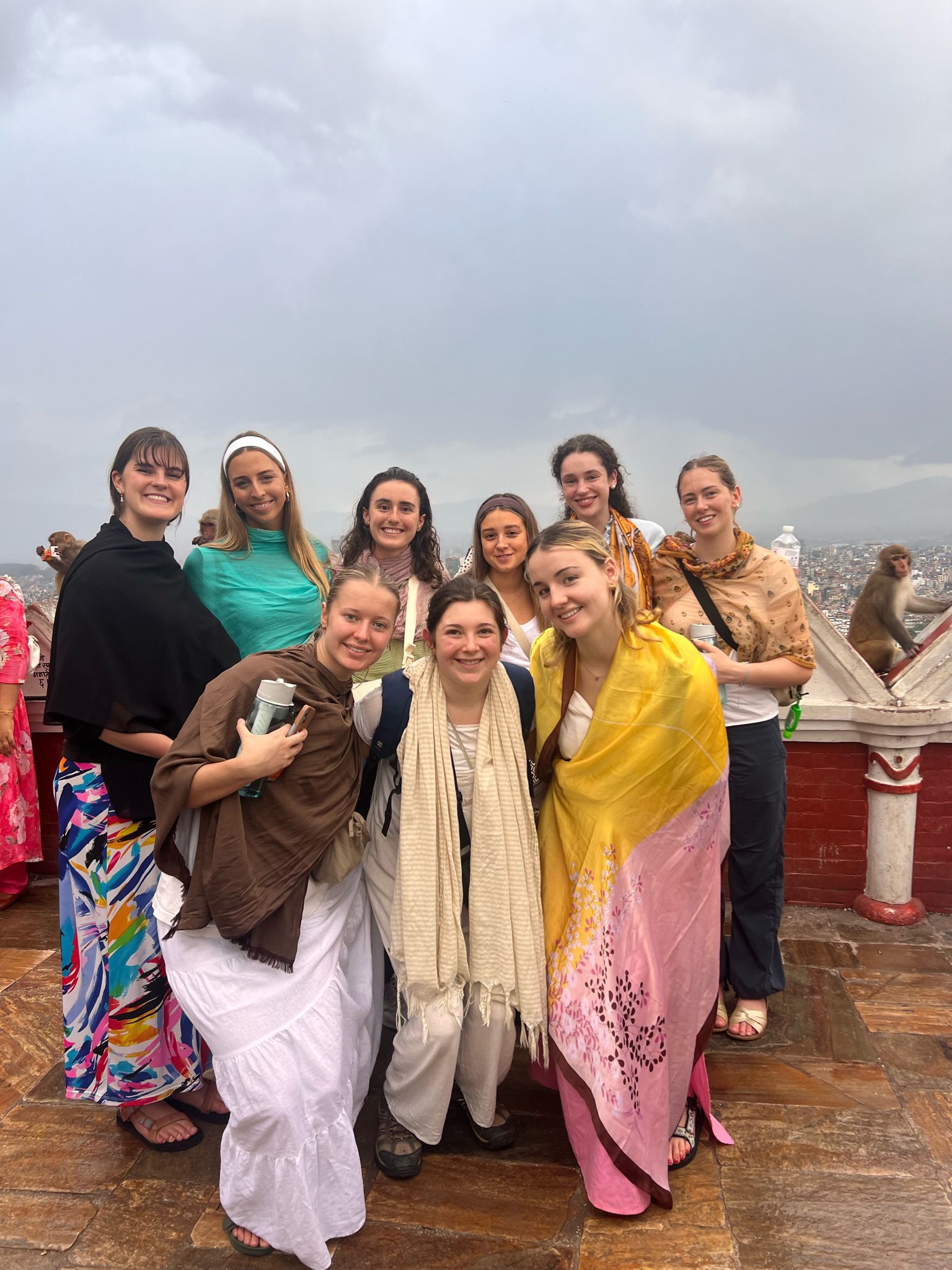
Creating core memories
It was monsoon season when the students arrived in Gorkha; they slept on cardboard mats, with torrential rain battering the roof above them on a memorable first night.
When the rain stopped the next morning, the students stepped outside and what they saw “took their breath away”.
“The clouds parted and we could see the Himalayas for the first time,” Connor says.
“It’s something all of us will remember forever.”
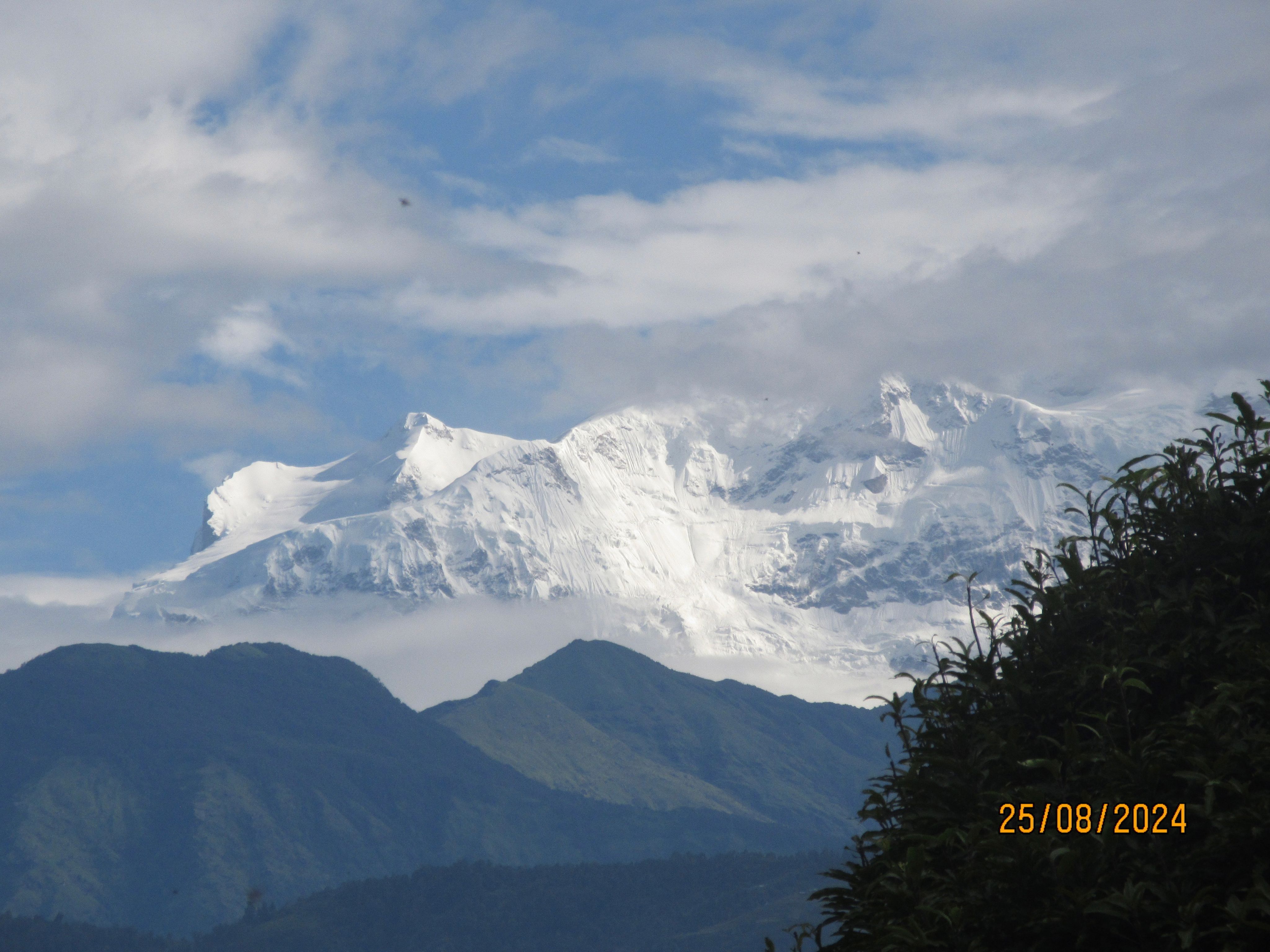
Sienna says her favourite memory is the Nepalese tea culture.
“Early one morning we hiked up to our host family’s grandparents’ house, it was in the middle of the clouds on a cliff,” recalls Sienna.
"They served us a sweet Nepalese tea and we all sat around the table. There was this deep sense of connection and community — even without being able to speak to each other.“

It sums up the whole experience — we were teaching kids and communicating with them through our body language, photos and visual demonstrations. The language barrier was an obstacle at first, but we were able to overcome it, and it was so rewarding.
"I’ve learnt a lot about how to listen and understand other people, and not just verbally.”
For Connor, working with the schoolkids was a trip highlight.
"I felt an outpouring of love and appreciation; they were so generous in inviting us into their environment and culture,” he says.
“Being able to see the impact of delivering feminine hygiene products in an area and culture that doesn’t have the resources to fund them was also really profound, particularly for the school-aged children where there isn’t as much medical support available.”
“It’s something all of us will remember forever.”
Leaving a mark
By the time they left, the 2024 Bond Aid group had paved the primary school courtyard to assist with water drainage during monsoon season, and rendered and painted a newly constructed classroom in the high school. “We have left a footprint for the 2025 group to step back into,” Sienna says. “Bond Aid has built an ongoing relationship with PSDNepal and with the schools.
"We were able to see the work that was done in 2017 when the last group from Bond went, including a toilet block they had built and left hand imprints on.” The 2024 group left their hand imprints on the classroom they rendered and painted.
Connor hopes the Bond Aid legacy will continue into the future, with the 2025 trip planning already underway.
Leaving a mark
By the time they left, the 2024 Bond Aid group had paved the primary school courtyard to assist with water drainage during monsoon season, and rendered and painted a newly constructed classroom in the high school. “We have left a footprint for the 2025 group to step back into,” Sienna says. “Bond Aid has built an ongoing relationship with PSDNepal and with the schools.
"We were able to see the work that was done in 2017 when the last group from Bond went, including a toilet block they had built and left hand imprints on.” The 2024 group left their own hand imprints on the classroom they rendered and painted.
Connor hopes the Bond Aid legacy will continue into the future, with the 2025 trip planning already underway.
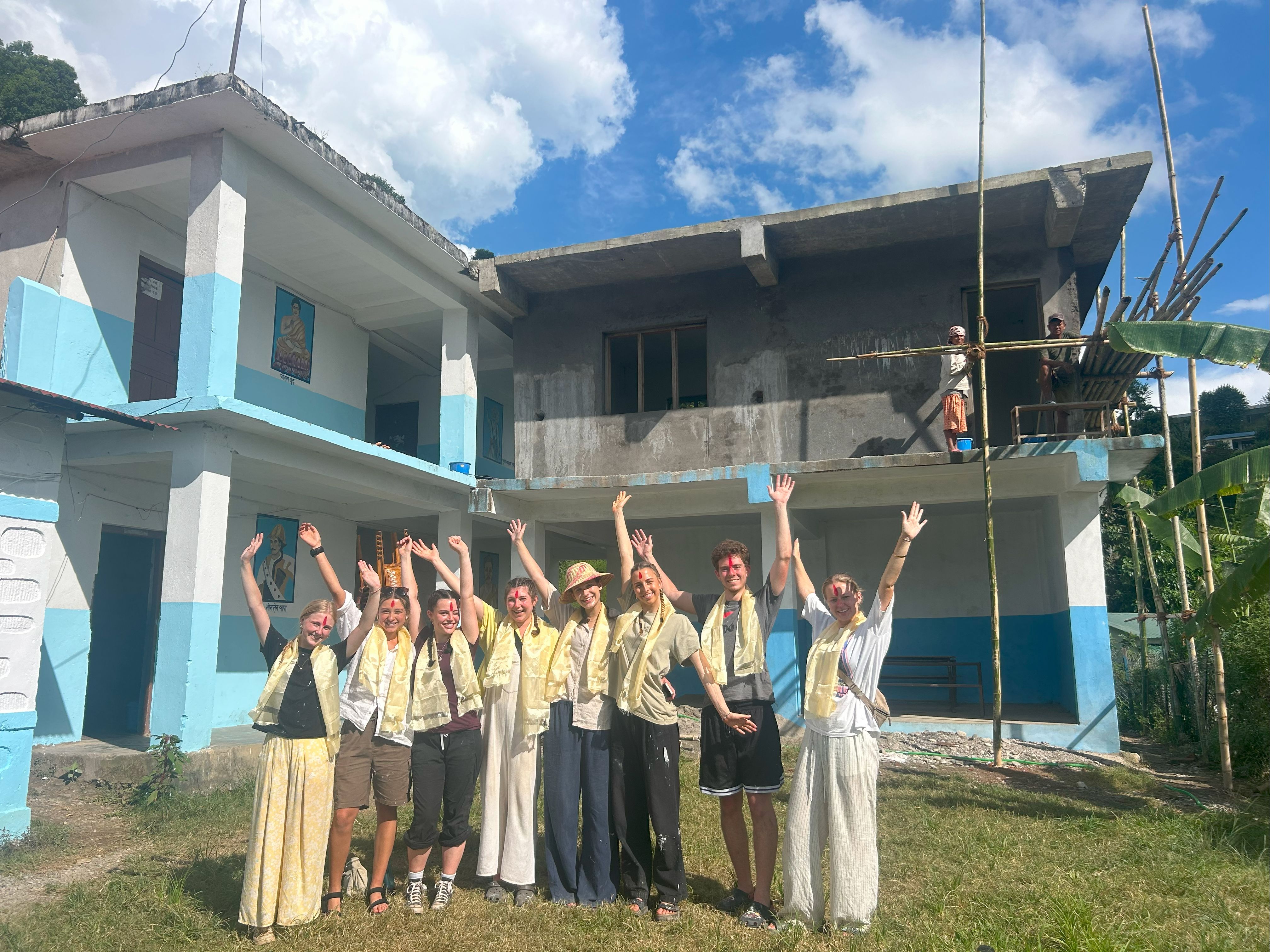
“It changes lives, both the lives of the people we were able to support but also the lives of us Bondies.”
Published on Wednesday, 21 May, 2025.
“It changes lives, both the lives of the people we were able to support but also the lives of us Bondies.”

Published on Wednesday, 21 May, 2025.

Original thinking direct to your inbox
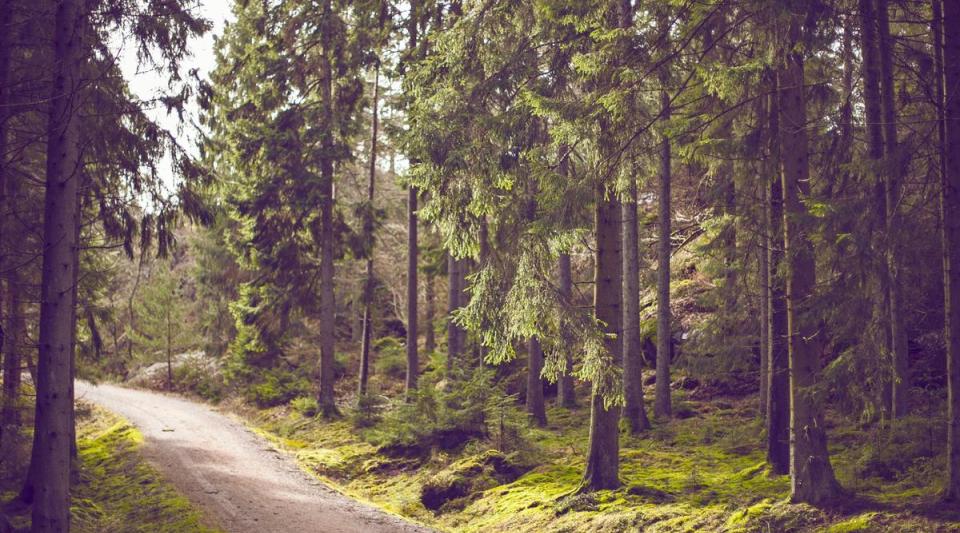
Stories from Bond


